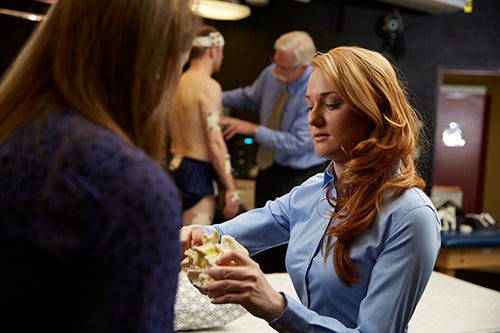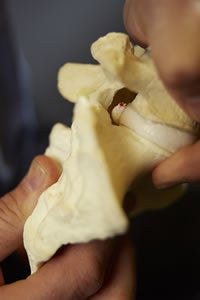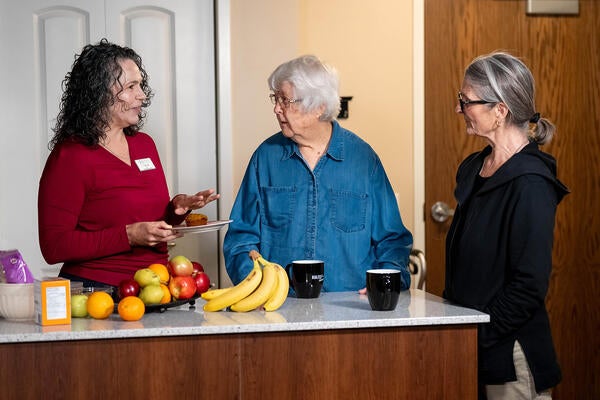
Waterloo research: Best sex positions for women with bad backs
“Spooning” can actually be one of the worst positions for some women with back pain, groundbreaking Waterloo study finds

“Spooning” can actually be one of the worst positions for some women with back pain, groundbreaking Waterloo study finds
By Christine Bezruki Faculty of Applied Health Sciences
Women with bad backs have renewed hope for better sex lives now that a groundbreaking study from the University of Waterloo has revealed the best way to minimize back pain during sex.
Newly published findings—part of the first-ever study to document how the spine moves during sex —outline which sex positions are best for women suffering from different types of low back pain.
“Traditionally, spooning was recommended by physicians to all individuals with back pain because it was thought to reduce nerve tension and load on the tissues,” said Natalie Sidorkewicz, a PhD candidate in Waterloo’s Faculty of Applied Health Sciences who led the study. “But when we examined spine motion and muscle activity, we found that spooning can actually be one of the worst positions for certain types of back pain.”
 Published in European Spine Journal, the female findings debunk the popular belief that spooning— where couples lie on their sides curled in the same direction—is the best sex position for all women with low back pain. The new recommendations follow on the heels of comparable guidelines for men released last month.
Published in European Spine Journal, the female findings debunk the popular belief that spooning— where couples lie on their sides curled in the same direction—is the best sex position for all women with low back pain. The new recommendations follow on the heels of comparable guidelines for men released last month.
The pioneering research combined infrared and electromagnetic motion capture systems, like those used by filmmakers for full computer graphic character animation, to track how 10 couples’ spines moved when attempting five common sex positions. The findings were used to create an atlas, or illustrated set of guidelines, that recommends different sex positions based on what movements trigger a patient’s pain.
“What we know now is that sex positions that are suitable for one type of back pain are not appropriate for another kind of pain,” said Sidorkewicz. “These guidelines have the potential to improve quality of life—and love-life—for many couples.”
According to Statistics Canada, four of every five people will experience at least one episode of disabling low-back pain in their lifetime. Up to 84 per cent of men with low-back pain and 73 per cent of women report a significant decrease in the frequency of intercourse when suffering back pain.
“Primary care physicians report it is common for couples to seek their advice regarding how to manage their back pain during and after sex. Many couples will remain celibate because the pain resulting from one night of love-making lasts months,” said Professor Stuart McGill, of the Faculty of Applied Health Sciences. “Now doctors have solid science to guide their recommendations.”
The next phase of the study will involve recruiting patients with different categories of back and hip pain, as well as additional sex positions, to further develop the recommendations.

Read more
The Government of Canada announces funding to support research in food policies and medical devices

Read more
How machine learning empowers collaboration between computer science, math and medical research

Read more
Dr. Heather Keller discusses the need to transform mealtimes in Canada’s long-term care homes from a service to a meaningful form of care
The University of Waterloo acknowledges that much of our work takes place on the traditional territory of the Neutral, Anishinaabeg, and Haudenosaunee peoples. Our main campus is situated on the Haldimand Tract, the land granted to the Six Nations that includes six miles on each side of the Grand River. Our active work toward reconciliation takes place across our campuses through research, learning, teaching, and community building, and is co-ordinated within the Office of Indigenous Relations.